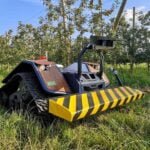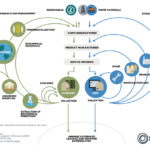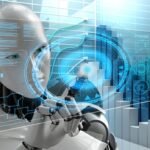
The field of artificial intelligence (AI) is experiencing a period of unprecedented growth, and its impact is felt in numerous sectors, including scientific research. This increase in AI adoption has sparked a “deep learning revolution” that is transforming the way scientists approach discovery.
The Royal Society has published the report “Science in the Age of AI” which delves into the impact of AI on scientific progress. The report addresses the following questions:
- How are AI-driven technologies transforming the methods and nature of scientific research?
- What are the opportunities, limitations, and risks of these technologies for scientific research?
- How can relevant stakeholders (governments, universities, industry, research funders, etc.) better support the development, adoption, and use of AI-driven technologies in scientific research?
Unprecedented Progress in AI
The recent surge in AI development, with advancements like ChatGPT and Midjourney, has sparked public interest and policy debates. However, for scientists, AI is not entirely new.
The report emphasizes the impact of “deep learning,” a subfield of AI that enables computers to learn from large amounts of data. This allows scientists to discover hidden patterns and relationships in complex datasets, leading to advances in fields such as medicine, materials science, and climate research.
Big Data Meets Great Potential
Large and complex datasets (from telescopes, satellites, and advanced sensors) hold immense potential for achieving scientific breakthroughs. AI techniques excel at identifying hidden patterns and relationships within these data, which would be difficult to discern using traditional methods. This allows scientists to:
- Develop more accurate simulations: AI can analyze data from diverse sources to create realistic simulations, helping decision-makers address pressing social and environmental challenges.
- Generate new insights: AI tools can identify patterns and predict new content, allowing scientists to run more accurate simulations and create synthetic data.
Case Studies: AI in Action
The report highlights the power of AI in specific areas:
- Climate Science: AI can analyze vast climate datasets to predict weather patterns and improve climate models.
- Materials Science: AI can accelerate the discovery of materials by analyzing their properties and predicting new materials with desired functionalities.
- Rare Disease Diagnosis: AI can analyze medical images and patient data to identify rare diseases more accurately.
Challenges on the Horizon
While the opportunities presented by AI are undeniable, challenges also arise with its adoption. Here are some key areas of concern:
- Reproducibility: Verifying and replicating experiments conducted with AI tools can be difficult due to factors such as limited access to code, data, and computing resources.
- Interdisciplinarity: Silos between disciplines can hinder collaboration. Effectively integrating AI requires researchers with expertise in both AI and specific scientific fields to work together.
- Environmental Costs: Running the massive computing infrastructure required for AI can be energy-intensive, raising environmental concerns.
- Transparency and Open Science: The “black box” nature of some AI systems and the often proprietary nature of commercial AI models limit transparency and hinder the application of open science principles.
- Shifting Incentives: An excessive focus on AI expertise could lead researchers to prioritize “being good at AI” over “being good at science,” potentially neglecting established methodologies.
The Road Ahead
The Royal Society, a leading scientific organization, emphasizes the importance of addressing these challenges to ensure AI reaches its potential in science. Their report, “Science in the Age of AI,” offers recommendations for maximizing the benefits of AI in research while maintaining public trust in science and scientific integrity.
The report acknowledges that more research is needed to explore critical areas such as the provision of high-performance computing resources, the potential of artificial general intelligence (AGI), and the specific skills required for the future workforce. Ongoing programs by the Society will delve into these topics and explore solutions to ensure a future where AI and science work hand in hand for the betterment of humanity.
The report concludes with a series of recommendations including:
- Governments, research funders and AI developers should improve access to essential AI infrastructures.
- Funders and AI developers should prioritise accessibility and usability of AI tools developed for scientific research.
- Research funders and scientific communities should ensure that AI-based research meets open science principles and practices to facilitate AI’s benefits in science.
- Scientific communities should build the capacity to oversee AI systems used in science and ensure their ethical use for the public good.
Reference (open access)
The Royal Society. 2024. Science in the age of AI: How artificial intelligence is changing the nature and method of scientific research. 108 p. Issued: May 2024 DES8836_1 ISBN: 978-1-78252-712-1





